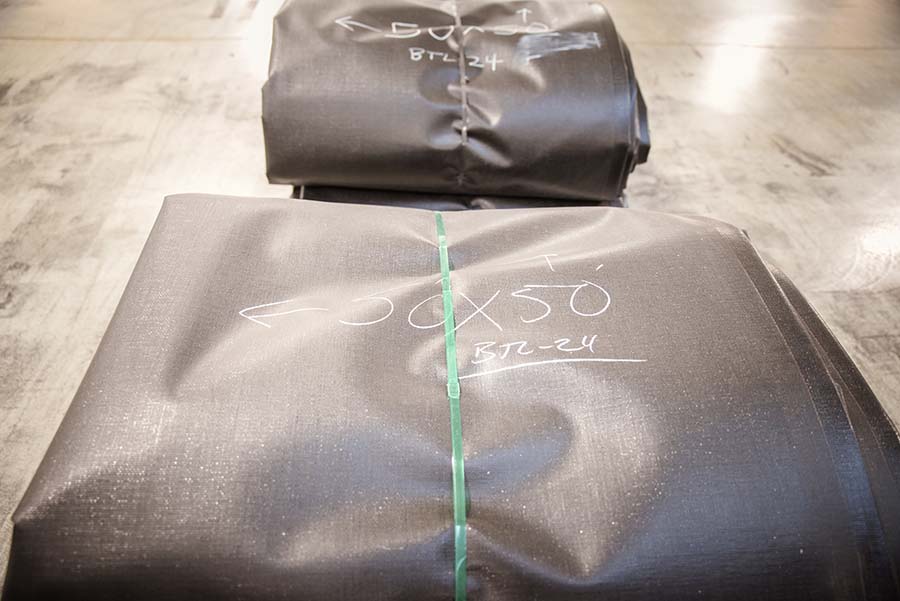Article Center
The Importance of Pond Liners for an Algae Pond
Pond liners aren’t optional for algae ponds. While you may be able to grow fish or plants in mud-bottomed or clay-lined ponds, this won’t work for commercial algae production.
Designing Open Algae Ponds
It’s not enough to simply dig a pond, fill it with water, and sprinkle in an algae sample. Open ponds used for algaculture need constant water mixing, the appropriate depth, and accurate projections of the water evaporation and loss rates.
Open vs Closed Production Algae Systems
Algae is either produced in an open production system or a closed one. Bioreactors and sealed containers make up the closed category, while all other ponds, tanks, raceways, and tubs fall into the open category.
Types of Cultured Algae
There are thousands of distinct algae varieties that are purposefully cultivated around the world.
Uses for Algae
Algae serves many purposes in both traditional cuisine and modern manufacturing processes. Exploring the uses for various kinds of micro- and macroalgae will help you choose the right variety for your system.
5 Tips for Maintaining Your Koi Pond
Once you’ve built the koi pond of your dreams, you can keep it looking good and requiring few repairs with some basic maintenance steps.
Choosing Filtration Methods for a Koi Pond
Each fish produces plenty of waste in the form of ammonia, which is then broken down by bacteria and oxygen into nitrites and then subsequently broken down into nitrates.
What Pond Liners are Best for Koi Ponds?
Proper pond liner selection is crucial for koi ponds. While many plants will grow in practically any kind of liner, fish are much more sensitive to chemicals that can leach out from specific flexible and rigid materials.
Designing a Koi Pond That’s Easy to Maintain
Now that you know the basics of sizing and designing a koi pond, there’s still a few factors to consider in your project.
Protecting Your Fish from Predators
If you’ve never had fish living in your yard or near your business, you may have never seen the many predators that love to snack on expensive koi.
Picking a Pond Size Based on the Koi You Want to Keep
You’re free to design a koi pond based around the available space in your backyard and then calculate how many fish will fit in that space.
Extra Koi Pond Features Worth the Investment
Beyond the basics required for that koi to thrive, there are some optional pond features that are worth considering.
What Do Koi Need to Thrive?
As you dive into the fun world of koi, you'll discover that with the proper tools to keep your pond clean and your koi healthy, these fish can be your companions for 20 years or longer.
How are Brine Ponds Designed?
Designing a quality brine pond, that functions as desired, takes a lot more work than just picking a liner.
Which Liner Material is Best for Brine Ponds?
A liner of some kind is essential for a brine pond because the water can’t be allowed to seep out through bare soil.
The Question of Covers for Brine Ponds
When brine ponds are designed for short or long-term storage rather than evaporation or alternative processing, covers are often used to contain the water.
How Brine Ponds Differ from Other Evaporation Ponds
Evaporation ponds are used for non-brine wastewater too, so in some cases they do not need such stringent engineering and security as the brine pond.
Why Brine Ponds Are Better Than Other Processing Methods
Sizes, depths, volumes, and length of use vary, but all lined brine ponds share some common advantages over other processing methods available for brine treatment.
Sources of Brine Waste
The term brine doesn’t just refer to the combination of water and salt.
The Main Uses for Brine Ponds
Brine ponds are all involved in the storage or processing of brine, but the specific purpose for the pond can vary greatly.
The Most Common Forms of Damage to Irrigation Canal Liners
Even after careful selection and installation, a canal liner made from any material can eventually become damaged and begin to leak. Concrete, geomembranes, and mortar-based systems are tougher than other materials, but they can still become damaged by specific hazards.
Issues Common to Unlined Canals
It is tempting to leave a canal unlined when it’s a small branch that is only supplying irrigation water to distant fields.
Choosing the Right Geomembrane Material for a Canal Liner
Even once you’ve narrowed down your wider canal liner choices to a geomembrane, you still have multiple materials to choose from.
Using Geomembranes as Underlayment for Concrete
If you’ve decided to pair a geomembrane from BTL Liners with some form of concrete or mortar, you’ll need to pick a product capable of pulling this duty.



























